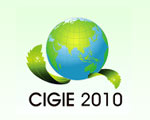Debate: Nuclear energy
By M.D. Nalapat (China Daily)
2011-03-23 15:41
|
|
Is nuclear energy clean and safe? A scholar swears it is, while another says we should think twice.
It's clean, it's safe, it's the future
Western forces are striking Libya on the pretext of fighting a "tyrant", once again underscoring that oil is the primary cause of much of the modern world's conflicts. Iraq was attacked by United States-led forces in 2003 for the same reason and because Saddam Hussein refused to follow the example of many other countries in the region and favor the US and the European Union.
Not many people know that the US Department of Defense consumes close to 500,000 barrels of oil a day. Modern warfare is fuelled by oil, which is needed to keep aircraft, ships, tanks, trucks and other fighting vehicles moving, and to power missiles and rockets.
Since the end of World War II, the US and the European powers have stitched together a network of alliances to ensure cheap and easy access to oil. In countries whose leaderships are not close to them, such as Venezuela, they support regime change, as they did in Iraq - and now want to do in Libya.
And let us not forget the immense damage caused to the environment by fossil fuels, which emit pollutants that in turn cause many diseases and the deaths of millions of people. Yet despite such an abysmal record, the oil lobby in developed countries continues to ensure that the spotlight is trained on the only energy that can become a substitute within a decade, that is, nuclear energy.
After the man-made nuclear disaster at Chernobyl in 1986, several theories were floated about the number of people who died because of radiation and radiation-related diseases. Some estimates put the death toll from radiation-related diseases at more than 175,000, while even the lowest estimates spoke of 10,000.
As US writer Gwyneth Cravens says, the group of 226,000 workers active in cleaning up the Chernobyl facility surroundings "received an average body dose of 1,000 millirems, less than they would have received from nature if they had moved to (the US) northeastern (state of) Washington for a year". She says that studies conducted on more than 500,000 workers involved in the cleanup "failed to find any correlation between the increased exposure to radiation and a rise in cancer or death rates". Ten years ago, a United Nations committee concluded that at Chernobyl, "there is no scientific evidence of increases in overall cancer incidence or mortality".
But thanks to the immense reach of the oil lobby, such facts are kept hidden from the public, which is given daily doses of stories on the "dangers of nuclear power".
In India, foreign agencies which eager to ensure that the country does not develop into an economic superpower have been known to clandestinely fund protests and agitations against nuclear power and uranium mining. People living around nuclear power facilities - or a newly selected nuclear power plant site - are told that their lives are at risk, and that they should oppose nuclear power plants and uranium mining. India suffers from a serious shortage of uranium because powerful, hostile lobbies prevent the mining of this essential metallic element.
Outside interests opposed to the nuclear industry in Asian countries are aware that without this technology no country can continue to lift hundreds of millions of people out of poverty. Sadly, many officials, too, believe in such falsehoods. In the Chernobyl region, for example, a longstanding practice has been to blame every death on the 1986 nuclear accident so that more foreign funds can be secured.
Not all types of radiation are harmful, and precaution can be taken against even the most harmful ones. That's why an overwhelming majority of scientists favor nuclear energy to that generated by burning coal or oil.
| ||||
In contrast, less than 10 people have died because of the radiation from the Fukushima Daiichi nuclear facility, which has been the focus of media attention. Instead of viewing the Fukushima experience as a reason to avoid nuclear plants, we should realize that even in this purported horrific disaster the number of deaths were very few.
Although many governments are aware that the actual risk is low, they have sought to become popular among their public by raising the Fukushima scare further. The governments of many developed countries have asked their citizens living in Japan to leave and/or advised people back home, or not to visit that country at least for the time being. In fact, the radiation caused by the X-ray machines at airports and flights is many times more than any possible risk from the damaged Fukushima nuclear plant.
The United Kingdom government has even distributed iodine tablets among its nationals in Tokyo, even though the Japanese capital is far away from Fukushima and iodine can protect only the thyroid gland, not other organs of the human body. In case there is a high-level radiation, the iodine tablets so generously given by the UK embassy in Tokyo will ensure that a radiation victim's thyroid gland remains healthy while the rest of his/her body suffers. It should be kept in mind that several top oil companies in the world are based in the UK.
China, India, Brazil, Russia and South Africa (BRICS countries) should use their upcoming summit in Hainan province, China, as a platform to start a program to inform their people about the importance of nuclear energy. The people of these important countries need to be warned not to fall prey to the panic created against nuclear energy and force their governments to abandon nuclear power, compelling them to remain dependent on the oil lobby.
It's time BRICS countries established a "Nuclear Information and Safety Forum" to promote and develop this important form of energy, and spread harmony and prosperity through it.
The author is vice-chair, Manipal Advanced Research Group, UNESCO Peace chair and professor of Geopolitics, Manipal University, India.







